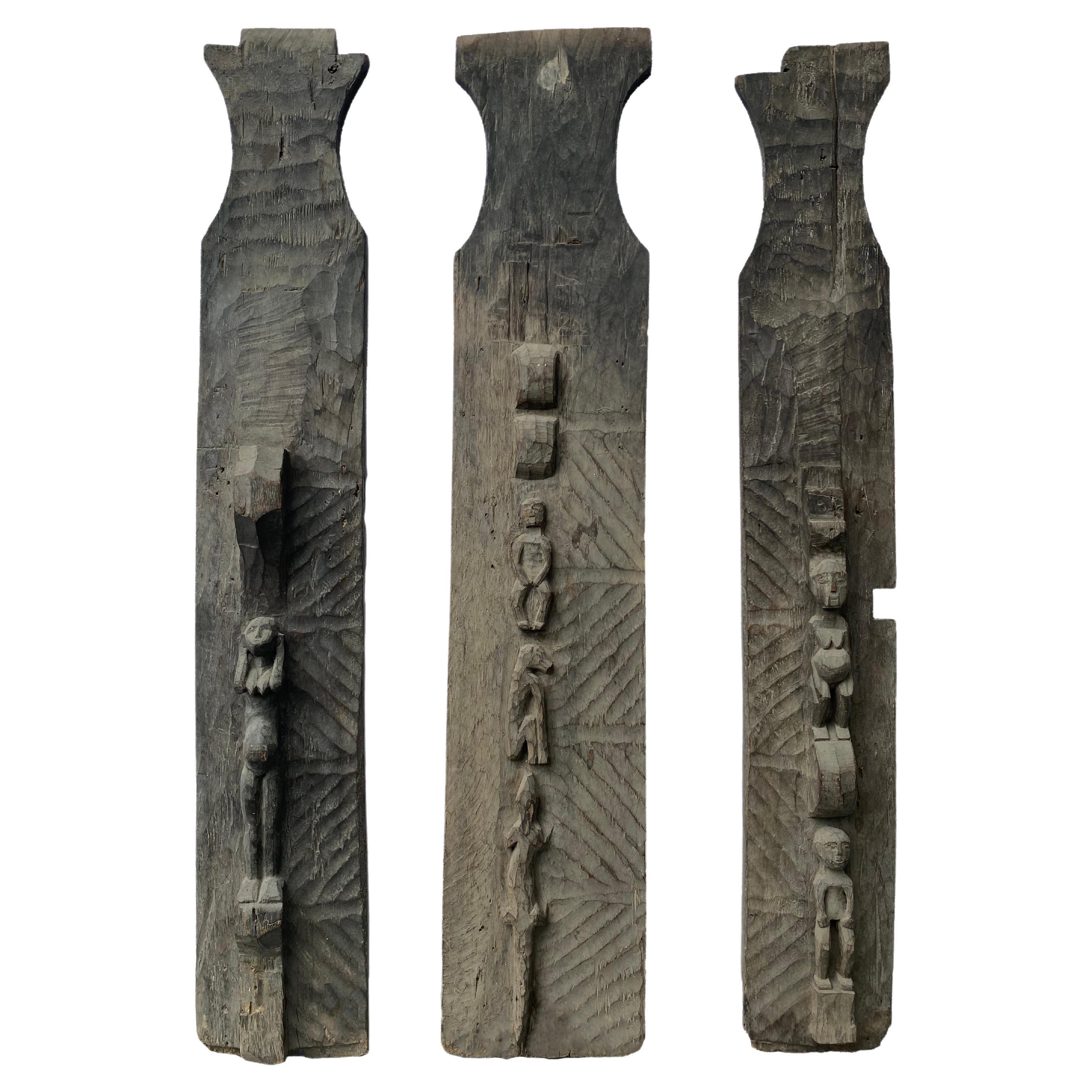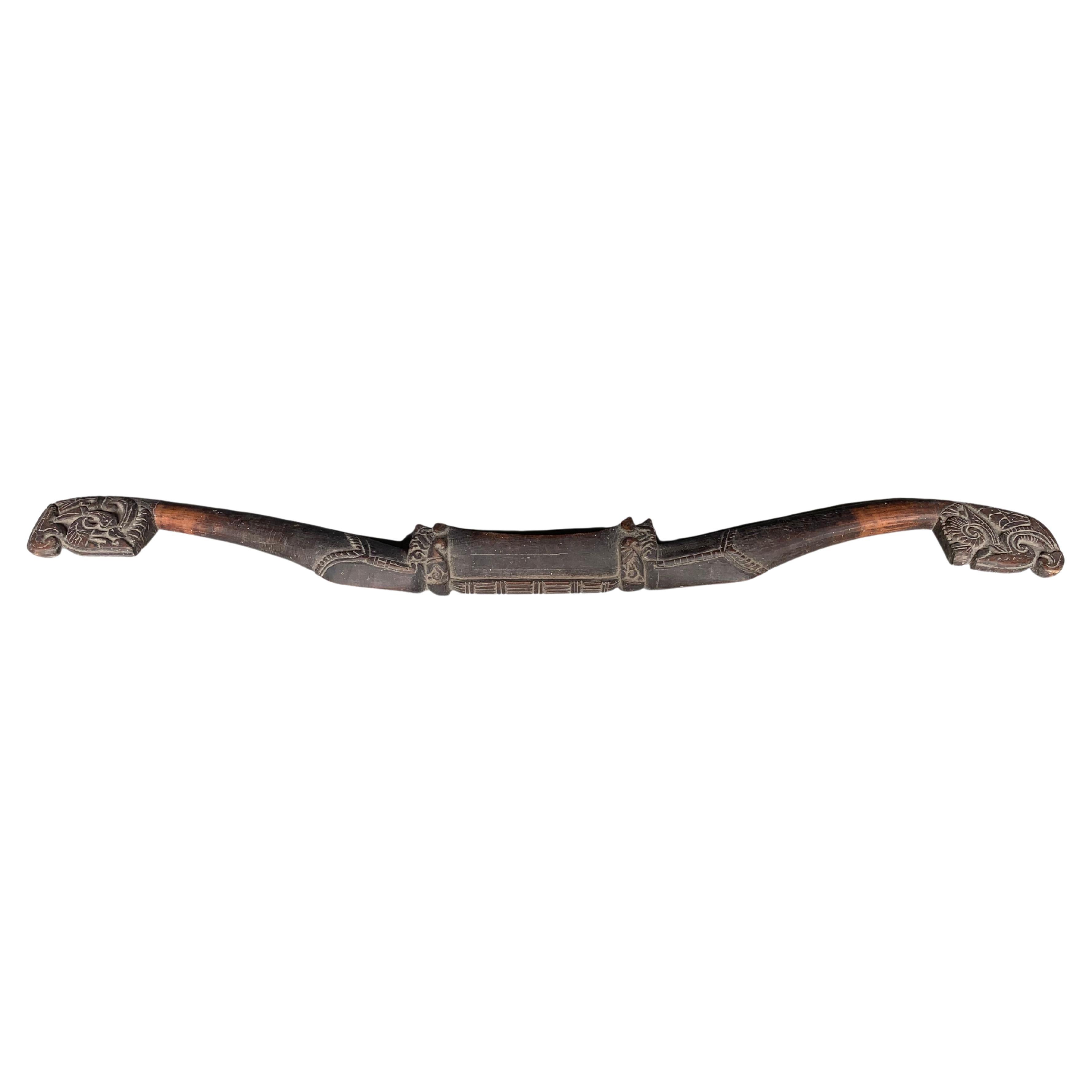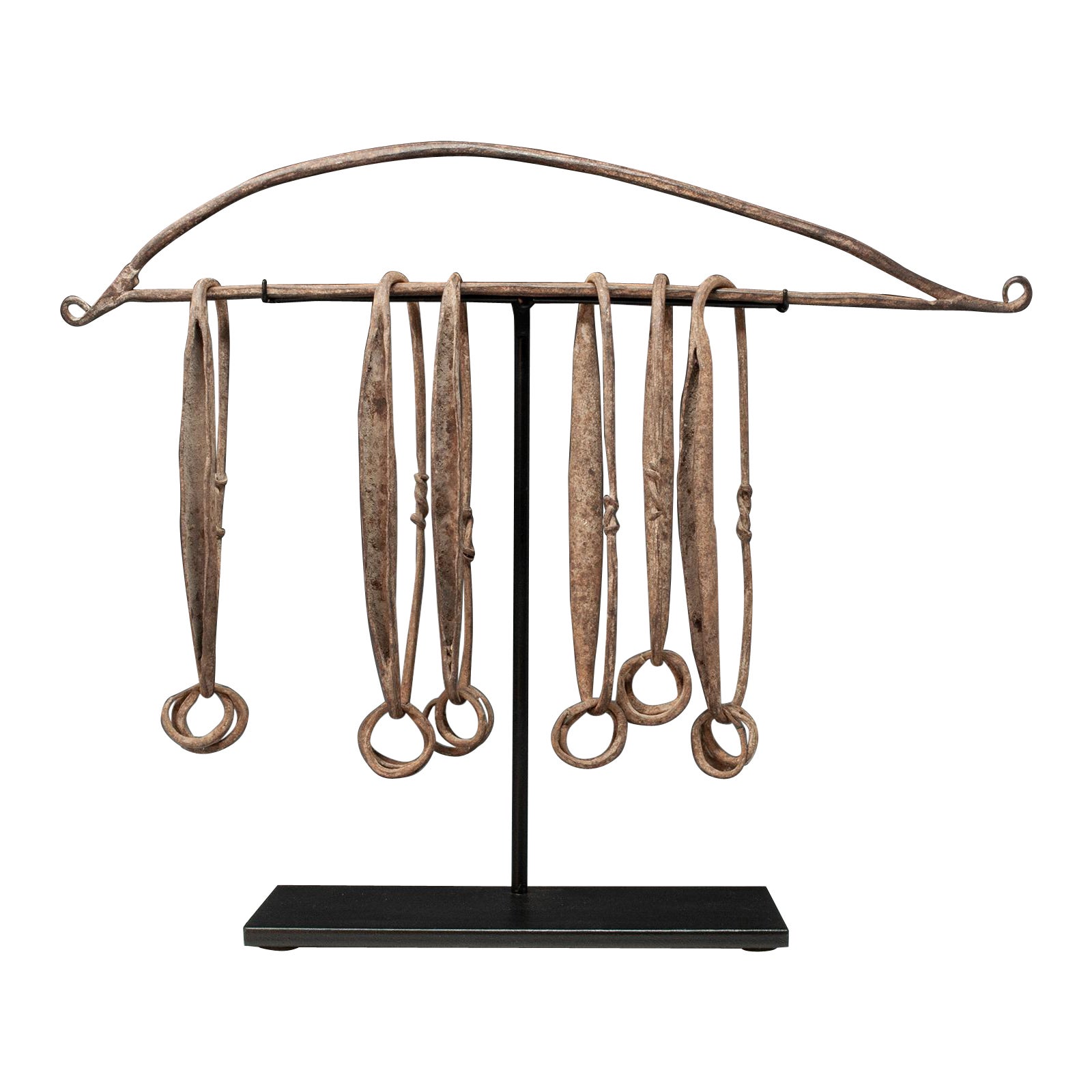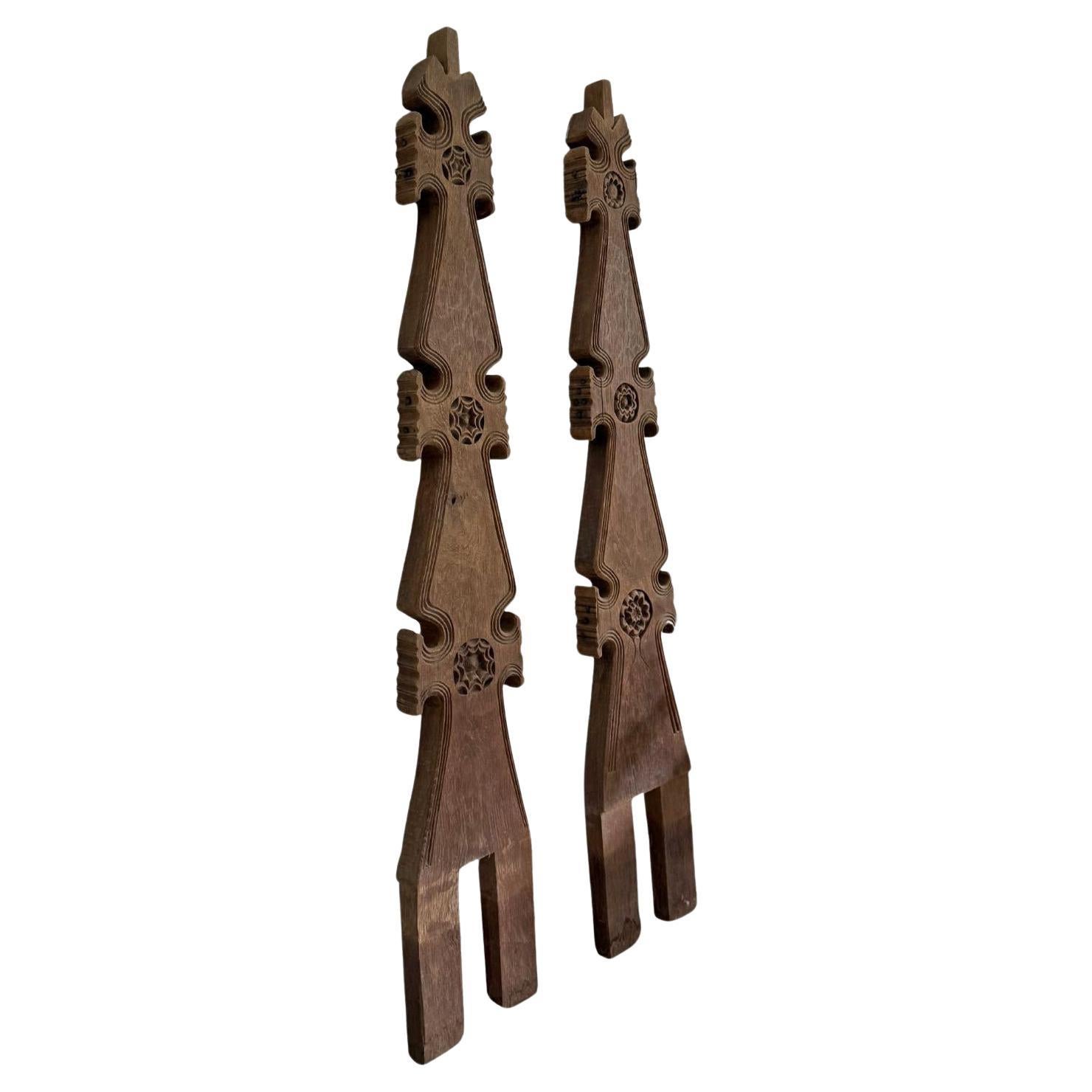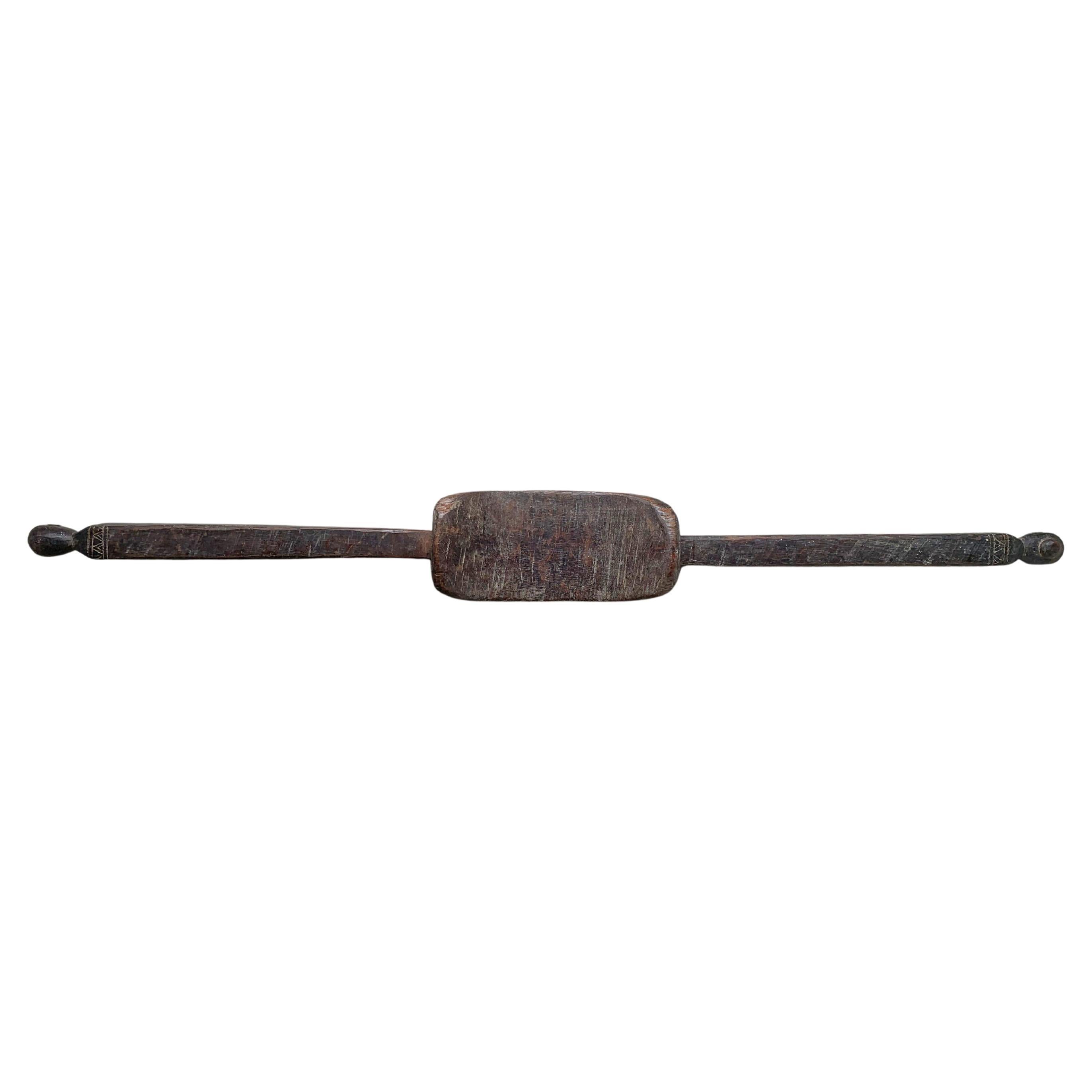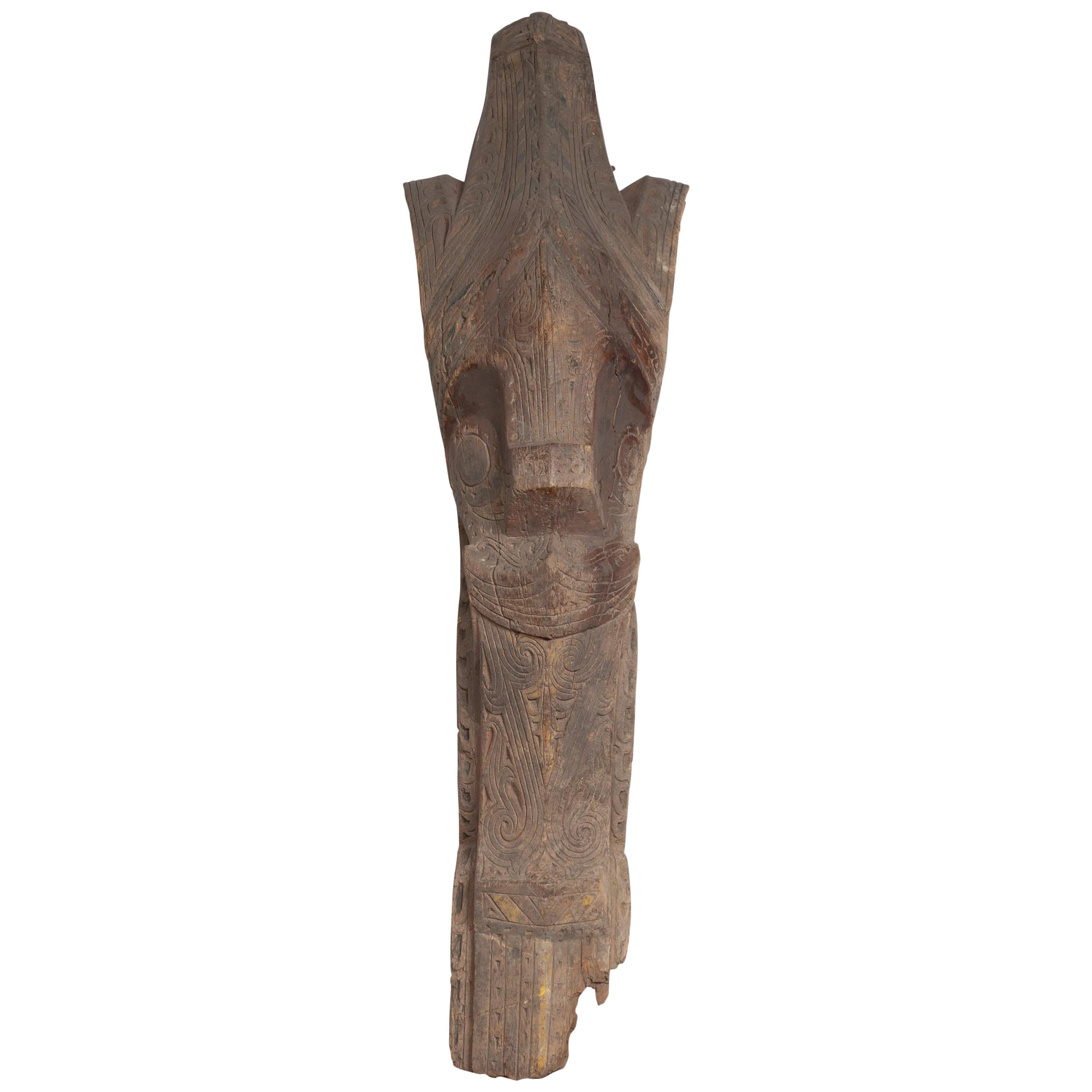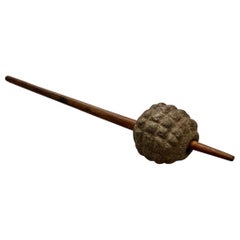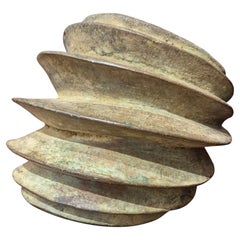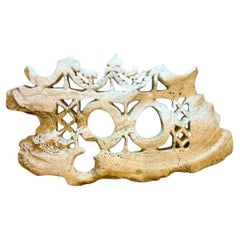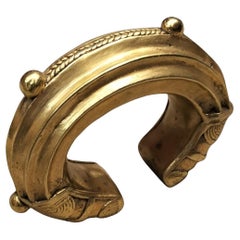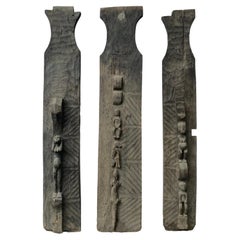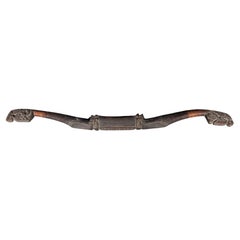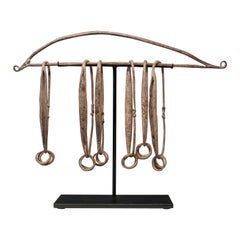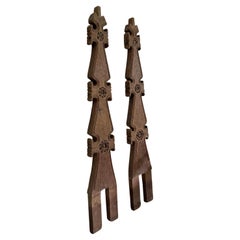Items Similar to Collection of Kriss Handles, Java, Indonesia, Late 18th / Early 19th Century
Want more images or videos?
Request additional images or videos from the seller
1 of 20
Collection of Kriss Handles, Java, Indonesia, Late 18th / Early 19th Century
$2,117.64per set
£1,611.46per set
€1,800per set
CA$2,967per set
A$3,231.29per set
CHF 1,703.75per set
MX$39,301.82per set
NOK 21,424.55per set
SEK 20,094.47per set
DKK 13,709.94per set
About the Item
A set of thirteen kriss handles originating from Java, Indonesia, dating from the late 18th to early 19th century.
Beautiful aged patina in dark or amber tones. Exquisite carving work featuring zoomorphic motifs, floral designs, and deities.
Height ranges from 8 to 12 cm – Width: 4 to 5 cm
The kriss is a traditional weapon, consisting of a long dagger or a slender sword with a blade that can be straight or wavy, sharpened on both edges. The earliest known krisses date back to the 14th century and are believed to have originated in Java. However, much older depictions can be seen in the bas-reliefs of the Borobudur and Prambanan temples, built in the 9th century in central Java.
The kriss gained popularity in the 16th century, alongside the rise of maritime trade across Southeast Asia. Interestingly, until 1910, two krisses were featured on the national flag of the Kingdom of Thailand.
Believed to possess magical powers, the kriss also serves a ritual purpose. Each one is crafted for a single owner, who is spiritually involved in the process with the blacksmith. So important is the kriss that it can symbolically stand in for its owner during ceremonies.
In the 19th and 20th centuries, the kriss became especially popular due to its use in traditional Balinese dance performances. Since 2008, the kriss and the art of its craftsmanship have been inscribed on UNESCO’s list of Intangible Cultural Heritage of Humanity.
- Dimensions:Height: 4.73 in (12 cm)Width: 1.58 in (4 cm)Depth: 1.97 in (5 cm)
- Sold As:Set of 13
- Style:Tribal (Of the Period)
- Materials and Techniques:
- Place of Origin:
- Period:1790-1799
- Date of Manufacture:Circa 1790
- Condition:Wear consistent with age and use.
- Seller Location:NICE, FR
- Reference Number:1stDibs: LU9202244424722
About the Seller
5.0
Vetted Professional Seller
Every seller passes strict standards for authenticity and reliability
Established in 2003
1stDibs seller since 2023
35 sales on 1stDibs
Typical response time: 2 hours
- ShippingRetrieving quote...Shipping from: NICE, France
- Return Policy
Authenticity Guarantee
In the unlikely event there’s an issue with an item’s authenticity, contact us within 1 year for a full refund. DetailsMoney-Back Guarantee
If your item is not as described, is damaged in transit, or does not arrive, contact us within 7 days for a full refund. Details24-Hour Cancellation
You have a 24-hour grace period in which to reconsider your purchase, with no questions asked.Vetted Professional Sellers
Our world-class sellers must adhere to strict standards for service and quality, maintaining the integrity of our listings.Price-Match Guarantee
If you find that a seller listed the same item for a lower price elsewhere, we’ll match it.Trusted Global Delivery
Our best-in-class carrier network provides specialized shipping options worldwide, including custom delivery.More From This Seller
View All19th Century Kukukuku Club from Highlands Papua
Located in NICE, FR
This rare antique Kukukuku (pronounced "cookah-cookah") war club is from the remote highlands of Papua New Guinea. It features a head made of stone in the characteristic 'pineapple' ...
Category
Antique 19th Century Papua New Guinean Tribal Arms, Armor and Weapons
Materials
Stone
Ankle Bracelet "Djokélebalé" or "Nsoukou" – Kota Culture, Gabon, 19th century
Located in NICE, FR
Impressive open bronze alloy ankle bracelet, featuring a wide ring decorated with six raised moldings. The oxidized, granular patina attests to its age and ritual use.
These ornamen...
Category
Antique 1890s Gabonese Tribal Tribal Art
Materials
Bronze, Copper
Shell Plaque (Barava) from Solomon Islands, 19th Century
Located in NICE, FR
Objects crafted from the shell of the giant Tridacna clam, also known as the fossilized giant clam, held great value among numerous Melanesian peoples. The artistry of working with f...
Category
Antique 19th Century Solomon Islands Tribal Tribal Art
Materials
Shell
Nigerian 19th Century Gold and bronze trade currency Bracelet
Located in NICE, FR
We present you an 19th century antique Nigerian high quality bronze GOLD PLATED bracelet currency traditionally used in monetary functions ...
Category
Antique 19th Century African Tribal Tribal Art
Materials
Bronze, Gold Plate
16th Century Ceremonial Urn from Burkina Faso, Africa
Located in NICE, FR
Beautiful funerary terracotta urn called from the Bura region (Niger) in West Africa. This cylindrical anthropomorphic sculpture is adorned with geometric designs. It depicts a human...
Category
Antique 16th Century Burkinabe Tribal Urns
Materials
Terracotta
Ciwara Bambara headdress in carved wood and basketry, Mali, Early 20th century
Located in NICE, FR
A very pleasing Ciwara crest, singularly small and accompanied by its original headdress, depicting a stylized antelope leaning on a pangolin. The antelope is ridden by a woman, and white horsehair has been added to the tips of the horns. The piece is carefully sculpted, with notches decorating the bodies of the antelope and the pangolin.
Rattan, plant fiber, cowries, wood Very fine velvety mat patina, Circa 1950
An animal called Ciwara is said to have taught the Bambara how to cultivate the land, and during agrarian ceremonies, they recall the myth through the stylized representation of an antelope whose name ci wara...
Category
Early 20th Century Malian Tribal Tribal Art
Materials
Wood
You May Also Like
Hand-Carved Wood Timorese Tribal Panel Set, Indonesia, Early 20th Century
Located in Jimbaran, Bali
These are early 20th century carved panels from Timor Island, they have been hand carved and feature a mix of human and animal figures. They also feature ceremonial tribal designs on...
Category
Early 20th Century Indonesian Other Sculptures and Carvings
Materials
Wood
Hand-Carved Backstrap with Floral Engravings from Madura, Java, Indonesia
Located in Jimbaran, Bali
Hand-carved from Wood this is a wonderful example of a Backstrap Loom, an essential component of Ikat textile weaving. The present Backsrap Loom comes from the Island of Madura, off the northeastern coast of Java. The Curved section would fit around the weavers back not only providing support while they would we weave elaborate Ikat textiles but also allowing her to control the tension of the warp during weaving. In many cases husbands would craft unique carved and designed Backstrap looms for their wives and these would often be passed down through generations. The present Backstrap Loom features floral engravings.
Category
Early 20th Century Indonesian Tribal Sculptures and Carvings
Materials
Wood
$516 Sale Price
20% Off
Early 20th Century Tribal Currency, Chamba People, Nigeria
Located in Point Richmond, CA
Forged iron currency, Chamba people, Northeastern Nigeria
A piece of traditional currency used for barter or exchange, it measures 15 inches (38 cm) high by 18 inches (45.7 cm) wide...
Category
Early 20th Century Nigerian Tribal Sculptures and Carvings
Materials
Iron
Vintage Gadang House Roof Ornaments, Hand-Carved Floral Motifs from West Sumatra
Located in Jimbaran, Bali
This striking set of vintage roof ornaments originates from a traditional Rumah Gadang house of the Minangkabau people in West Sumatra, Indonesia. Crafted from solid, timeworn hardwo...
Category
Vintage 1970s Sculptures and Carvings
Materials
Teak
Hand-Carved Backstrap Loom with Tribal Engravings from Timor Island, Indonesia
Located in Jimbaran, Bali
Hand-carved from Iron Wood this is a wonderful example of a Backstrap Loom, an essential component of Ikat textile weaving. The Curved section would fit around the weavers back not o...
Category
Early 20th Century Indonesian Tribal Sculptures and Carvings
Materials
Wood
$480 Sale Price
20% Off
Hand Carved Singa Singa Tribal Carving from the Batak People in Sumatra
Located in Yonkers, NY
A antique hand carved tribal carving from the Batak People, northern Sumatra, called a Singa Singa with traces of green and yellow polychromy and nicely weathered appearance. Attract...
Category
Early 20th Century Indonesian Tribal Sculptures and Carvings
Materials
Wood
